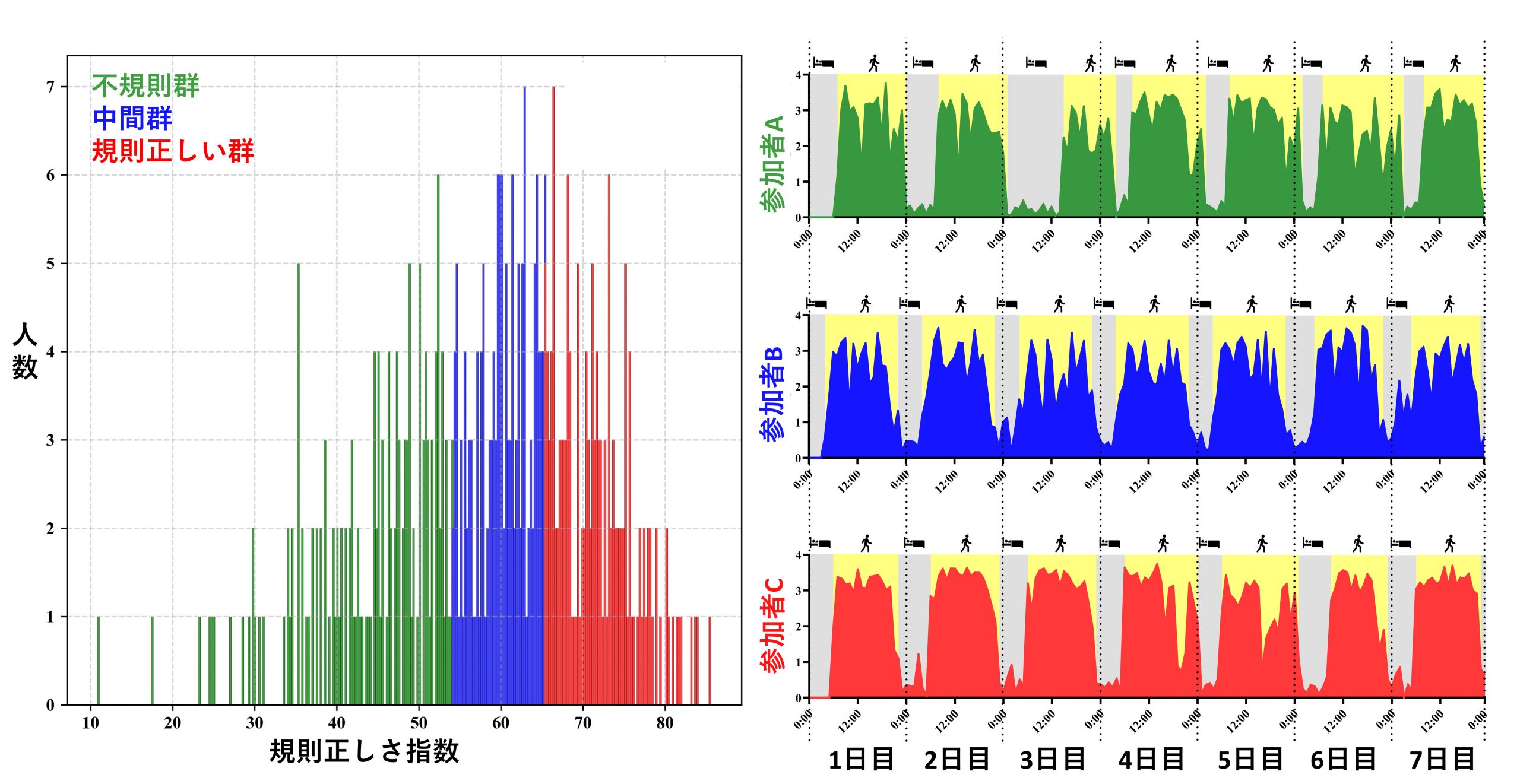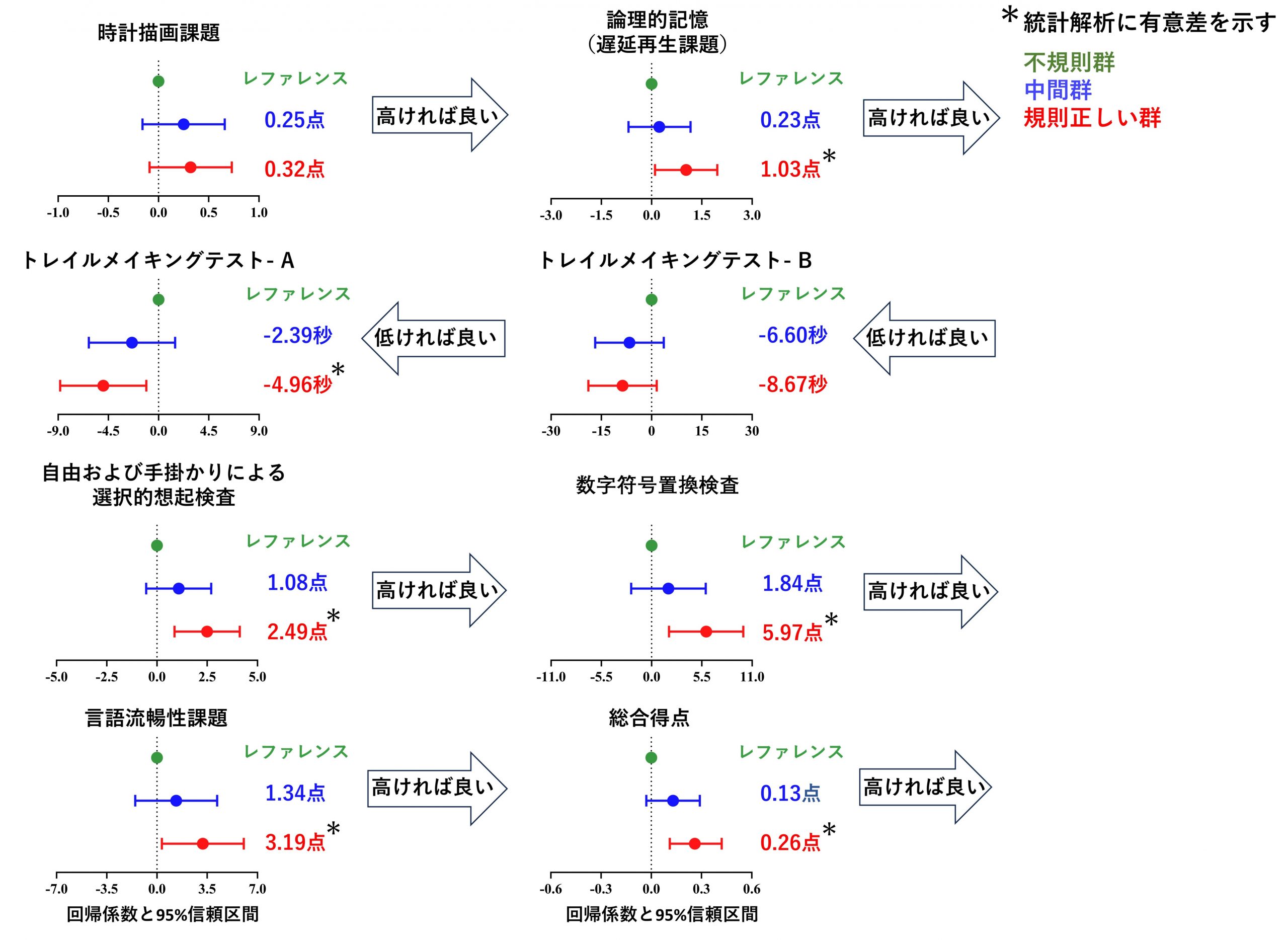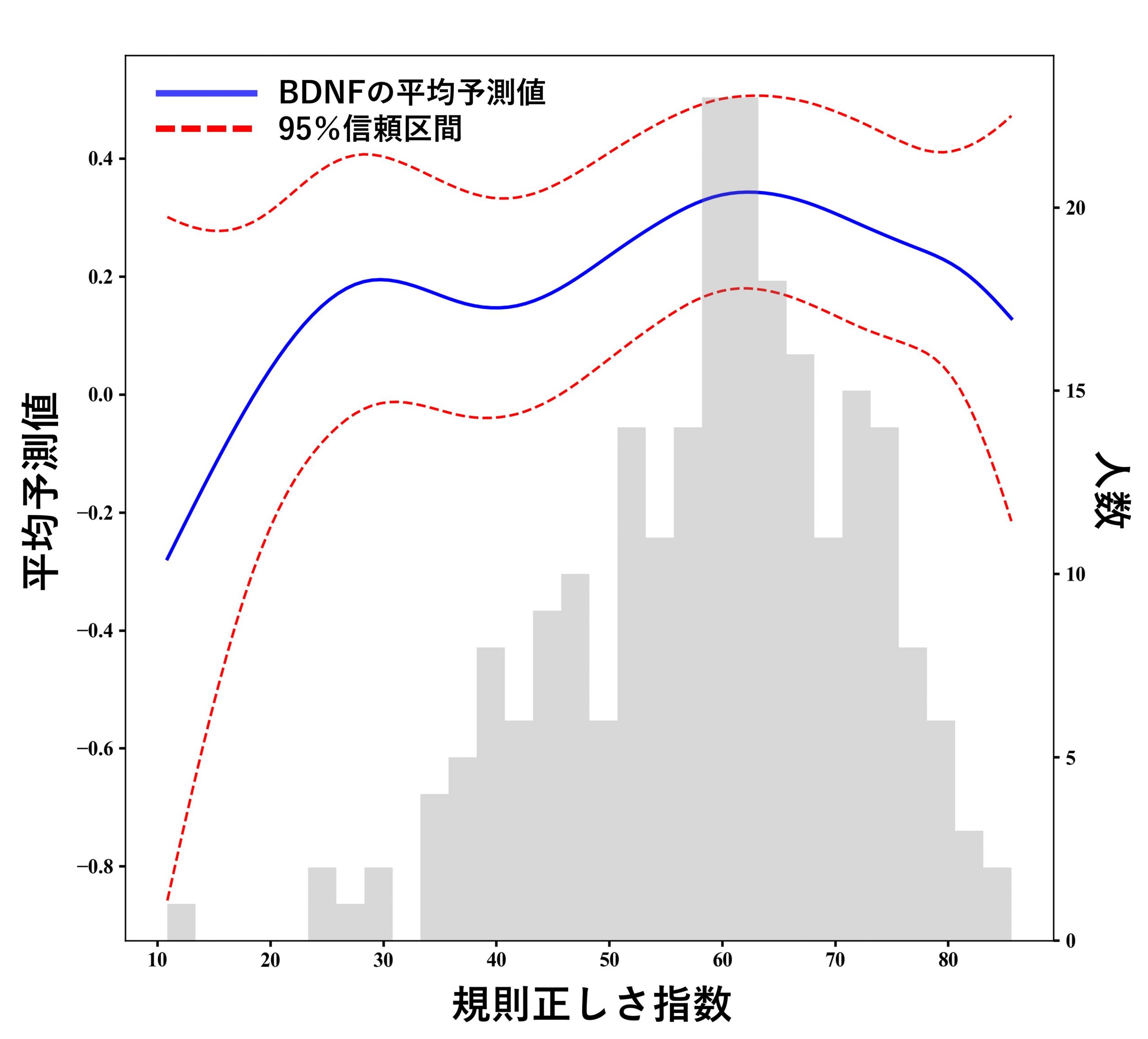★Professor Okura, Assistant Professor Seol, and Ph.D. student Cao articles were published in Sleep Medicine
Sleep and physical activity are essential for mental and physical health. While previous research has mainly focused on quantitative aspects such as sleep duration and activity levels, increasing attention has recently been given to the regularity of daily rhythms. Regular sleep–activity rhythms have been associated with reduced cardiovascular risk, lower mortality, and a decreased risk of dementia. However, little is known about their impact on people at high risk of dementia or those with subjective cognitive decline.
In this study, we evaluated 24-hour sleep–activity rhythms using wearable devices for 7 consecutive days in 458 adults aged 45–89 years who reported subjective cognitive decline and sleep problems. Cognitive function was assessed with clinical tests, and blood samples were analyzed for brain-derived neurotrophic factor (BDNF), a marker of synaptic plasticity.
We found a clear linear association between greater rhythm regularity and better cognitive scores. In contrast, BDNF levels showed an inverted U-shaped relationship, being highest with moderate rhythm regularity and lower with both highly regular and irregular rhythms.
These findings suggest that regular sleep–activity rhythms benefit cognitive health, but overly rigid daily routines may reduce adaptability and potentially increase health risks.Medicine & Science in Sports & Exercise




